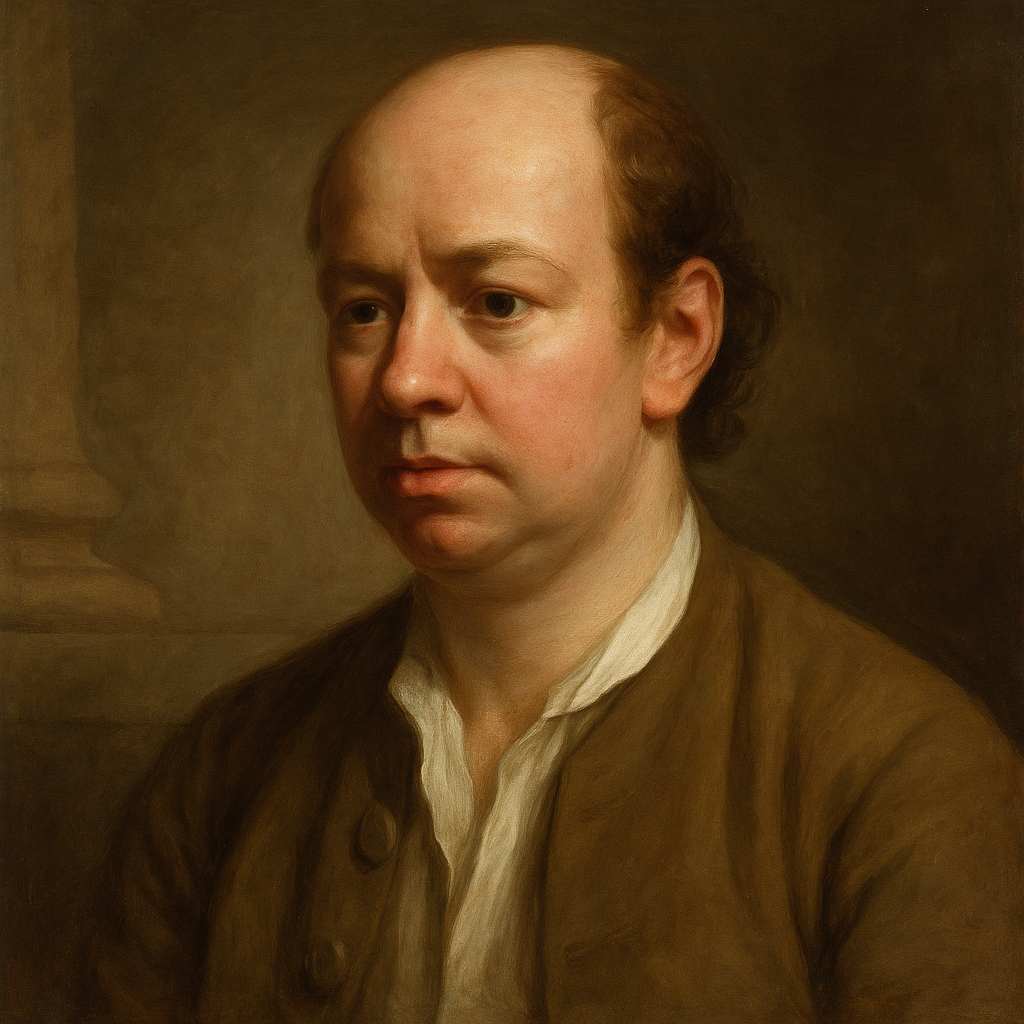1 Poems by Oliver Goldsmith
c.1728 - 1774
Oliver Goldsmith Biography
Oliver Goldsmith, born around 1728 in Pallas, County Longford, Ireland, emerged as one of the most versatile and significant literary figures of the 18th century, though his early life was marked by the kind of uncertainty that would later inform his most poignant works. The son of an Anglo-Irish Anglican curate, Charles Goldsmith, Oliver grew up in relative poverty, a circumstance that would profoundly influence his later writings on social inequality and the rural poor. His childhood home in Lissoy would later serve as the inspiration for the village in his masterpiece "The Deserted Village," though scholars continue to debate the extent of this connection.
Goldsmith's early education was marked by both struggle and promise. He studied at Trinity College, Dublin, as a sizar – a poor student who performed menial tasks in exchange for his education. His academic career was undistinguished, and he graduated last in his class in 1749, a fact that later critics would find ironically poignant given his eventual literary achievements. His university years were marked by a complex relationship with his tutor, Theaker Wilder, whose harsh treatment became legendary in Trinity College lore.
The years following his graduation were characterized by a period of aimless wandering that would later prove invaluable to his writing. He attempted to emigrate to America but never made it past Cork. He studied medicine in Edinburgh from 1752 to 1755, then embarked on a famous walking tour through Europe, supposedly financing his travels by playing the flute. These experiences would later surface in "The Traveller" (1764), his first major published poem, which established his reputation in London literary circles.
Settling in London in 1756, Goldsmith began his career as a hack writer, producing everything from children's books to natural histories. His "Enquiry into the Present State of Polite Learning in Europe" (1759) marked his first significant publication, but it was his poetry that would secure his lasting reputation. "The Traveller" demonstrated his mastery of heroic couplets and his ability to combine social commentary with personal observation, while "The Deserted Village" (1770) offered a devastating critique of rural depopulation and enclosure, themes that resonated deeply with his contemporaries and continue to speak to modern readers.
Goldsmith's circle in London included some of the most prominent literary figures of his day. His friendship with Samuel Johnson led to his membership in The Club, where he associated with figures like Edmund Burke, Joshua Reynolds, and James Boswell. Johnson's famous epitaph for Goldsmith – "Qui nullum fere scribendi genus non tetigit, nullum quod tetigit non ornavit" ("He left no type of writing untouched, and touched nothing that he did not adorn") – captures the extraordinary range of his literary achievement.
His only novel, "The Vicar of Wakefield" (1766), published with Johnson's help during a period of financial crisis, has become a cornerstone of 18th-century literature. The work's blend of sentiment, satire, and moral instruction created a new model for the novel, influencing writers from Jane Austen to Goethe. His plays, particularly "She Stoops to Conquer" (1773), successfully challenged the prevailing taste for sentimental comedy with their robust humor and clever plotting.
Despite his literary success, Goldsmith's personal life remained troubled. He never married, though he had several romantic attachments, and his financial difficulties persisted throughout his life, partly due to his gambling habits and partly due to his generous nature. His appearance – he was notoriously plain, with a pockmarked face – and his social awkwardness became the subject of much contemporary comment, though modern scholars tend to see these accounts as exaggerated.
When Goldsmith died on April 4, 1774, possibly of kidney disease exacerbated by self-medication, he left substantial debts but also a body of work that demonstrated extraordinary range and lasting influence. His funeral was attended by the literary elite of London, and his memory was honored by a monument in Westminster Abbey, though the inscription was not added until 1776.
Contemporary scholarship has increasingly recognized Goldsmith's significance not just as a poet but as a social critic whose work engaged with the major issues of his day: rural depopulation, colonialism, education, and the changing nature of British society. His poetry, particularly "The Deserted Village," continues to be read as both a masterpiece of 18th-century verse and a prescient commentary on environmental and social issues that remain relevant today.
Goldsmith's literary legacy lies not only in his individual works but in his ability to move between genres, adapting his style to suit different purposes while maintaining a consistent moral vision. His commitment to clarity and his ability to combine sentiment with satire created a model that influenced generations of writers. In an age of increasing specialization, Goldsmith remained a generalist whose work demonstrated that literary excellence could be combined with popular appeal.
This text was generated by AI and is for reference only. Learn more
Username Information
No username is open
Everything is free to use, but donations are always appreciated.
Quick Links
© 2024-2025 R.I.Chalmers (V2Melody).

All music on this site by R.I.Chalmers (V2Melody) is licensed under a Creative Commons Attribution-NonCommercial 4.0 International License.
Attribution Requirement:
When using this music, you must give appropriate credit by including the following statement (or equivalent) wherever the music is used or credited:
"Music by R.I.Chalmers (V2Melody) – https://v2melody.com"
Support My Work:
If you enjoy this music and would like to support future creations, your thanks are always welcome but never required.
Thanks!


